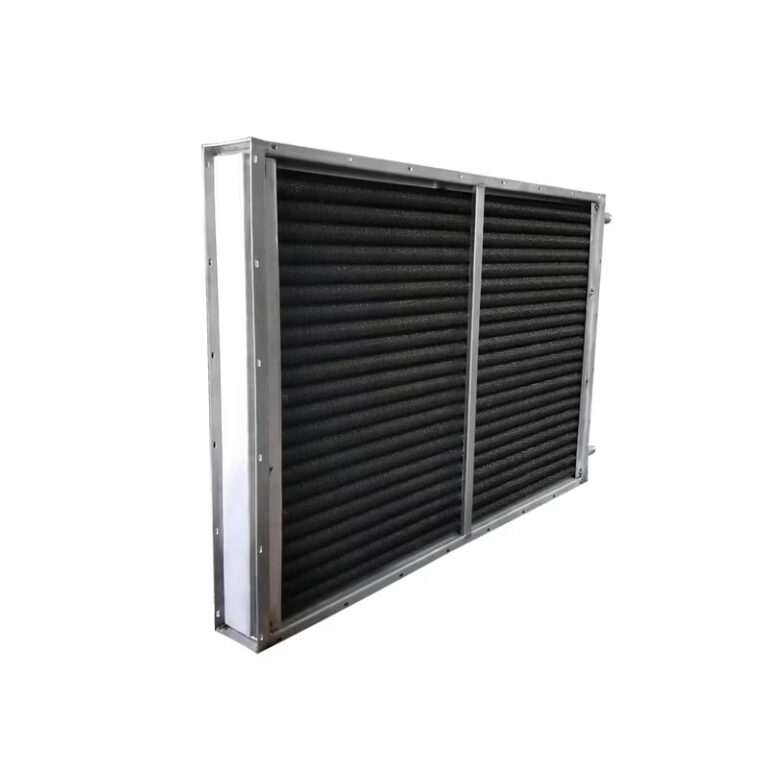Introduction
Compact modular exchangers have emerged as a game-changing solution. These exchangers are specifically designed to provide high thermal efficiency in a compact, modular structure, allowing businesses to optimize their processes without compromising on performance. Unlike conventional heat exchangers, which require large spaces and involve significant downtime for maintenance, compact modular exchangers are lightweight, easy to clean, and expandable to meet changing operational needs. With industries shifting towards sustainable, cost-effective, and energy-efficient solutions, compact modular exchangers are proving to be a highly preferred choice in sectors like power generation, chemical processing, pharmaceuticals, food and beverage, and marine applications. Their ability to offer superior heat transfer performance, adaptability, and reliability makes them an ideal investment for businesses seeking long-term efficiency improvements. Heat exchangers play a crucial role in various industries by facilitating the efficient transfer of heat between two or more fluids without direct contact. Traditional heat exchangers, such as shell-and-tube or plate exchangers, often come with limitations in terms of size, scalability, and maintenance.
Space-Saving Design
Compact modular exchangers are specifically engineered to provide maximum heat transfer within a minimal footprint. Their innovative design eliminates the need for large, bulky heat exchange systems, making them ideal for industries where space is a constraint. This is especially useful in marine applications, process industries, and compact industrial setups where floor space must be optimized.
Modular Scalability
A key advantage of these exchangers is their modular nature. Unlike traditional fixed-size heat exchangers, compact modular units can be expanded or modified by adding or removing modules to meet changing heat transfer demands. This feature allows industries to scale their cooling or heating capacity without replacing the entire system, resulting in cost savings and operational flexibility.
High Thermal Performance
Compact modular exchangers are designed with highly optimized heat transfer surfaces, such as microchannels, fin structures, or specialized plates that enhance thermal efficiency. This results in:
- Faster heat dissipation
- Better temperature control
- Higher heat transfer coefficients compared to conventional heat exchangers
By ensuring improved heat exchange performance, these systems contribute to overall energy efficiency and process optimization.
Reduced Maintenance Downtime
One of the most significant advantages of modular exchangers is their ease of maintenance. Traditional heat exchangers often require complete shutdowns for cleaning or repairs, leading to costly downtime. However, compact modular exchangers:
- Allow quick disassembly for easy cleaning
- Have replaceable parts that minimize system disruption
- Reduce the risk of fouling and clogging due to their efficient flow design
These features ensure continuous operation with minimal maintenance costs, making them an ideal choice for industries requiring high uptime.
Enhanced Energy Efficiency
Compact modular heat exchangers are designed to minimize energy consumption while maximizing performance. Their improved surface area utilization and optimized heat exchange mechanisms lead to:
- Reduced fuel or electricity consumption for heating or cooling processes
- Lower operational costs
- Improved sustainability by cutting down greenhouse gas emissions
This makes them a preferred choice for industries focusing on energy conservation and environmentally friendly solutions.
Application Versatility
The modular and compact nature of these exchangers makes them suitable for various industries, including:
- Power Generation: Used in turbine cooling and waste heat recovery systems
- Chemical & Petrochemical Industries: Efficient for processing high-temperature or corrosive fluids
- Food & Beverage Processing: Helps maintain precise temperature control in pasteurization and cooling processes
- Pharmaceutical Industry: Essential for maintaining strict thermal conditions in drug manufacturing
- Marine & Offshore Applications: Ideal for compact spaces aboard ships and offshore oil platforms
Their adaptability across industries makes them a future-proof investment for businesses with evolving heat transfer needs.
Corrosion-Resistant Materials
To ensure durability and longevity, compact modular exchangers are constructed using high-quality materials, such as:
- Stainless Steel (SS 304, SS 316L): Resistant to corrosion and suitable for food and pharmaceutical applications
- Titanium: Ideal for seawater cooling and aggressive fluid handling
- Nickel and Cupronickel Alloys: Used in heat exchangers exposed to saltwater or chemically aggressive environments
These materials provide reliability in harsh operating conditions and extend the equipment’s lifespan.
Plug-and-Play Installation
Unlike conventional heat exchangers that require complex piping and long installation times, compact modular exchangers are designed for quick setup. Their plug-and-play nature means:
- Faster deployment in industrial plants
- Lower installation and labor costs
- Easy integration into existing cooling or heating systems
This feature makes them particularly attractive for companies looking to upgrade their heat exchange systems with minimal disruptions.
Conclusion
Compact modular heat exchangers represent the next step in heat transfer technology, offering industries a smarter and more efficient way to manage thermal processes. Their small footprint, modular expansion capabilities, high energy efficiency, and ease of maintenance make them a standout choice compared to traditional heat exchanger designs. As industries continue to prioritize energy conservation, sustainability, and operational efficiency, the adoption of compact modular heat exchangers will only continue to rise. With their corrosion-resistant materials, plug-and-play installation, and wide applicability, these exchangers offer a future-proof solution for businesses looking to optimize their heat transfer systems. Investing in compact modular heat exchangers means lower energy costs, improved system reliability, and reduced downtime, all of which contribute to greater profitability and sustainability in the long run.

